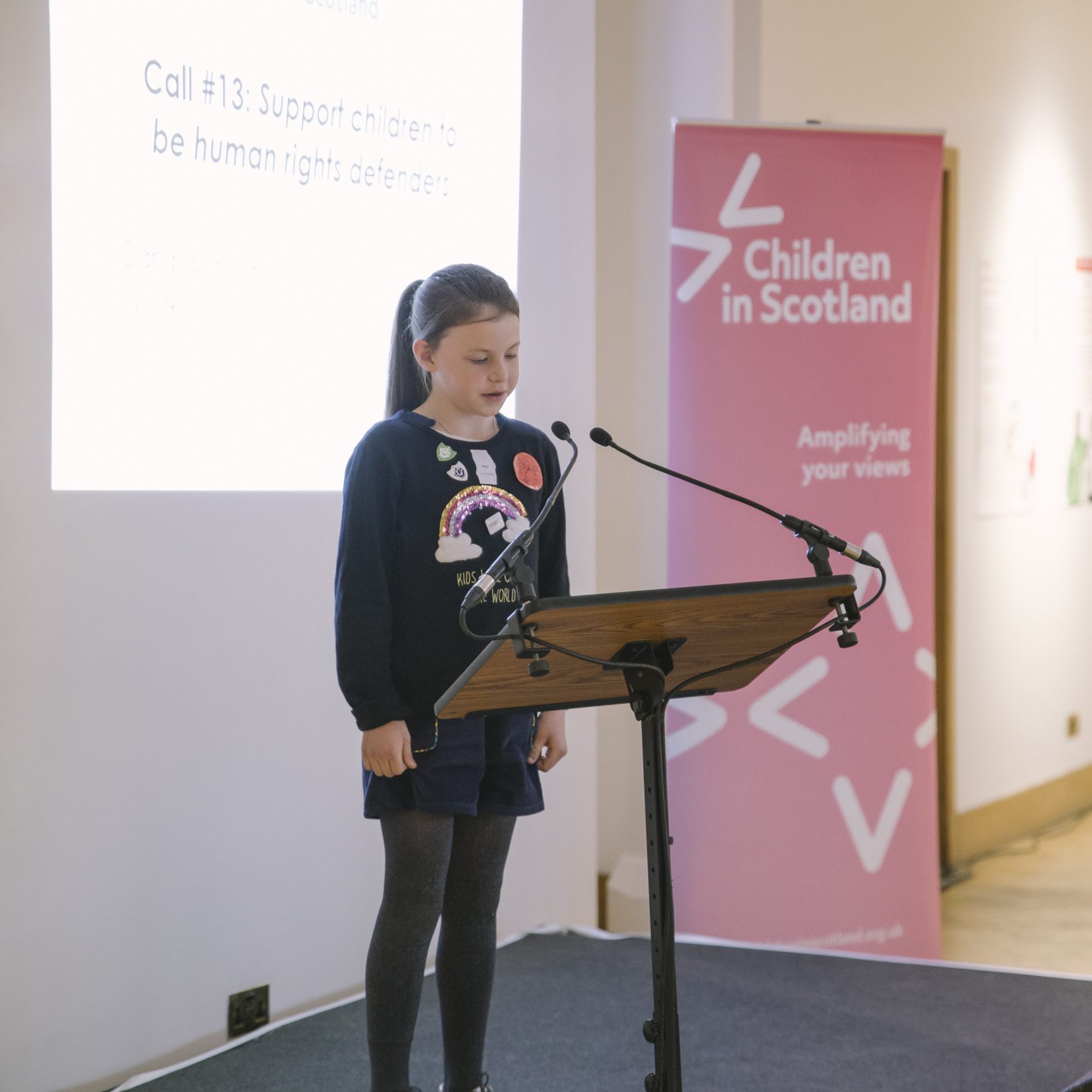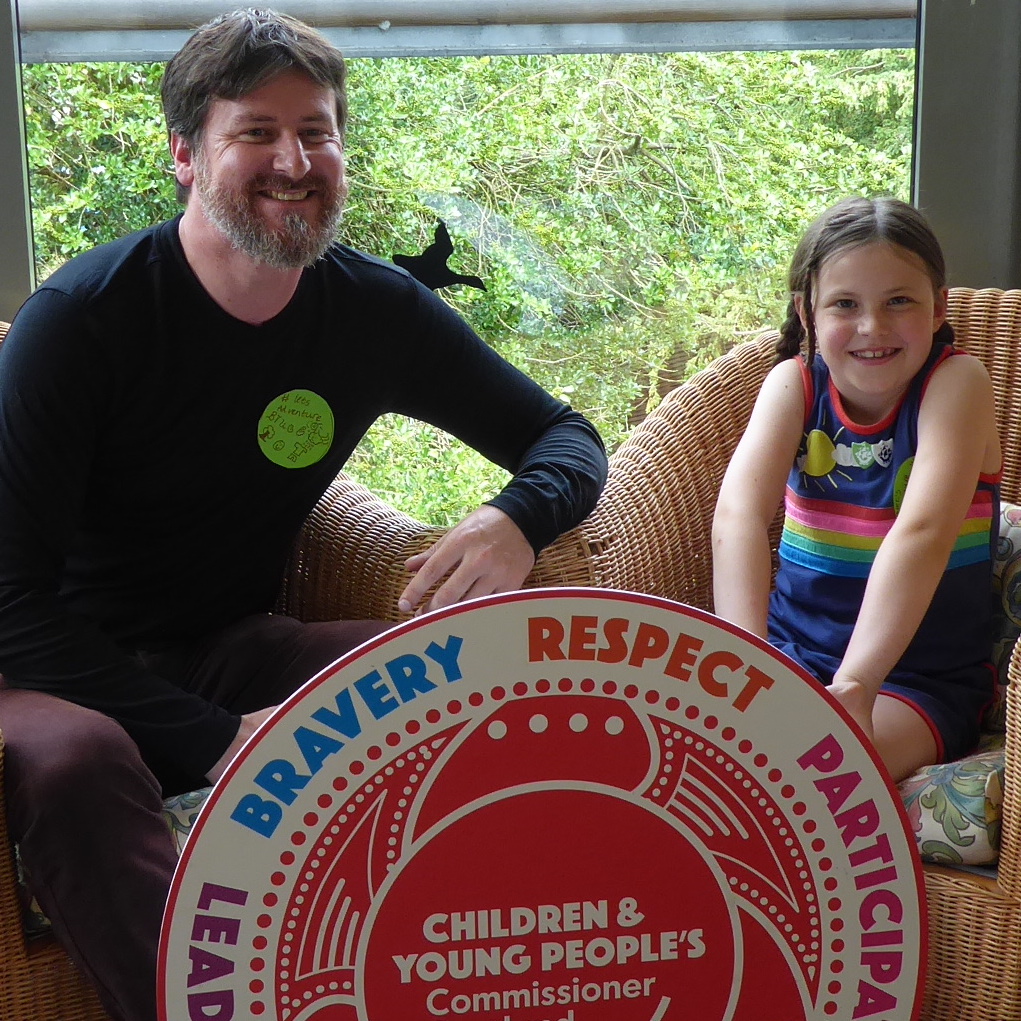Let's challenge the gender stereotypes that are constraining children
5 December 2018
Nikki Chung, Project Support Intern at Zero Tolerance, responds to Call 13 of our 25 Calls campaign, which focuses on tackling gender stereotypes in the context of supporting children to be human rights defenders.
Call 13: Support children to become human rights defenders
Zero Tolerance is super-inspired by Ruby’s dedication in her ‘Let’s Adventure’ campaign.
We could not agree more with Ruby when she says that we should be working harder to challenge gender stereotyping. Ruby’s upbeat approach to this issue is infectious. It energises us to continue challenging the ways in which children are limited and constrained by tired stereotypes.
We believe that it is never too early or late to challenge gender stereotyping, whether it be in schools or in a working environment.
But it is helpful to define what gender stereotyping is so we can fully understand the concept. Gender stereotyping perpetuates inequality and reinforces preconceptions about what an individual will like or how they will behave, simply because they belong to a particular group.

Ruby summarises this beautifully when she describes the clothing catalogue that only depicted girls in pink dresses, and boys in clothes fit for adventuring in.
This kind of stereotyping assumes that all boys will be the same and like the same things, and that all girls will be the same and like the same things. But what about wee girls, like Ruby, who want to climb trees, get muddy and be leaders?
What about wee boys who want to dance, wear sparkles and talk about feelings? These stereotypes directly influence the activities children participate in, and shape their interests, skills, and what roles they take in society as adults.
Children learn from a very young age that their behaviour, likes, dislikes and expectations should follow ‘rules’ about ‘girl’ and ‘boy’ roles. Treating young boys and girls differently sets up a pattern for life, based on difference.
Although there is nothing wrong with difference, when it leads to limitations and discrimination it can affect long-term confidence, opportunity, achievement, health, relationships, safety and more.
For example, action, construction and technology toys are mainly marketed at boys; social role play and arts and crafts toys are mainly marketed at girls. Marketing toys in this way limits play, which is crucial to how children develop and learn about the world. Boys should have the chance to practice social skills; and girls need to be active and learn spatial and problem-solving skills.
Themes of glamour and beauty in toys and attitudes directed at even the youngest girls tips over into a worrying emphasis on outward appearance and the devaluation of girls’ intellect and opinions. Fifty five per cent of girls aged 7–21 say gender stereotypes affect their ability to say what they think [1].
Stereotyped attitudes about boys are also harmful. The constant assumption reinforced in toy advertising and packaging that boys are interested only in action and violence tells calmer, sensitive or more creative boys that they don’t fit in and contributes to lower expectations for boys that undermine their performance at school.
Worryingly, the damaging effects of these early gender stereotypes are experienced by all children from a young age. This includes young girls experiencing eating disorders; bullying of children who do not meet stereotypical ideas of what it means to be a boy or a girl; and children who do not conform to gender stereotypes experiencing negative feelings about themselves.
These stereotypes of hard emotionless men and women being less important also contribute to the normalisation and perpetuation of violence against girls. One study found that girls as young as 12 had experienced pressure from their peers to send topless pictures of themselves by text and instant messaging services [2]. Gender-based violence also begins at a much earlier age than once assumed.
According to a study by the NSPCC a quarter of teenage girls have experienced physical violence in their intimate relationships [3].
Its not all bad though. Through the 25 Calls campaign, Ruby and Children in Scotland remind us of this. Its children and young people themselves who are most tired of these stereotypes, who want to play and learn without the restrictions these stereotypes place on them.
Young rights defenders like Ruby are leading the discussion about how we challenge and end these stereotypes. It's up to the rest of us to support and bolster the young people’s work, something we commend Children in Scotland for doing so well.
We will be launching our new resource with the Care Inspectorate, ‘Gender Equal Play in Early Learning and Childcare on 11 December, and launching our campaign on challenging gender stereotyping of young children in early 2019.
In the mean time please click here to check out our existing work on this issue.
Nikki Chung is Project Support Intern at Zero Tolerance.
She was responding to Call 13 of our 25 Calls, "Support children to become human rights defenders. Click here to read the call in full.
[1] www.nspcc.org.uk/Inform/research/findings/partner_exploitation_and_violence_summary_wdf68093.pdf
[2] www.nspcc.org.uk/Inform/resourcesforprofessionals/sexualabuse/sexting-research-summary_wdf89270.pdf
[3] https://www.girlguiding.org.uk/globalassets/docs-and-resources/research-and-campaigns/girls-attitudes-survey-2017.pdf

About the author
Nikki Chung works at Zero Tolerance, a charity challenging normalisation of violence against women
Click to find out more
Call 13
Inspired by Ruby, Bruce Adamson called for children to be supported to be human rights defenders
Click to read the call in fullProtecting and promoting child rights
The Children and Young People's Commissioner Scotland works to protect young people's rights
Click to visit the websiteTransforming society for every childhood
NSPCC stand up for children and demand that laws change to better protect them
Click to find out more25 Calls
Our major anniversary campaign proposes ways that children can better enjoy their rights and experience equality
Click to read moreAdventure, events and inspiration
Girlguiding UK empowers girls and young women to do amazing things
Click to find out more